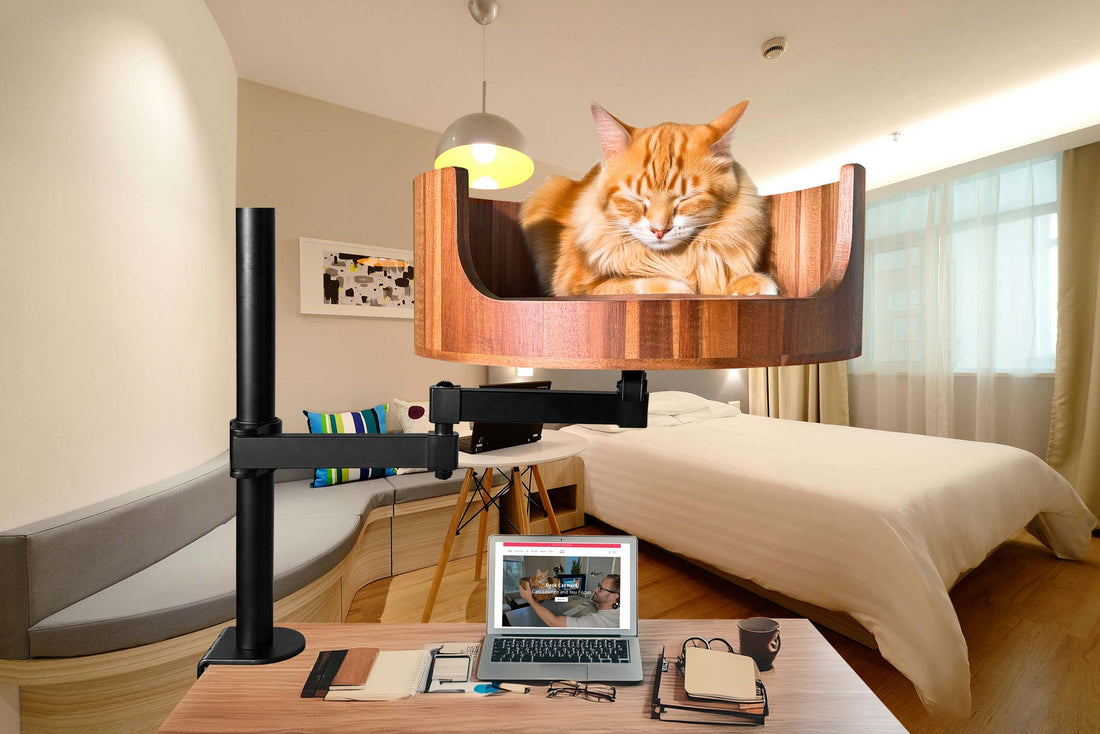
Why is my kitten shaking? Understanding the causes.
Share
If you've noticed that your kitten is shaking, it can be a cause for concern. Whether it's a subtle tremor or full-on shivering, understanding the reasons behind your kitten's shaking can help you determine the appropriate course of action to ensure their health and well-being. In this article, we will explore the various potential causes of why your kitten may be shaking, ranging from harmless behavior to more serious health issues.
From being cold or anxious to experiencing pain or illness, there are several reasons why your kitten may be shaking. By understanding these potential causes, you can better assess the situation and take the necessary steps to address any underlying issues. Additionally, we will provide tips on how to comfort your shaking kitten and when it may be time to seek veterinary advice. Stay tuned as we delve into the world of feline health to help you decipher why your kitten is shaking and what you can do to help them feel better.
1. Shaking in kittens can be caused by a variety of factors, including stress, low blood sugar, or even parasites.
2. It is essential to observe your kitten's behavior and overall health to determine the underlying cause of the shaking.
3. Providing a safe and comfortable environment for your kitten can help reduce stress and prevent shaking episodes.
4. Regular vet check-ups and proper nutrition are crucial in maintaining your kitten's health and well-being.
5. Consulting with a veterinarian is recommended if your kitten continues to experience shaking episodes to rule out any serious medical conditions.
Physical Health Issues
Kittens may shake due to underlying physical health issues such as hypoglycemia, seizures, neurological disorders, or even infectious diseases. Hypoglycemia, or low blood sugar, can cause weakness, trembling, and even seizures in kittens. Seizures can be triggered by a variety of conditions such as epilepsy, poisoning, or head trauma. Neurological disorders like cerebellar hypoplasia can also cause tremors and shakes in kittens. Additionally, infectious diseases like feline distemper or feline leukemia can lead to symptoms such as shaking, lethargy, and fever in kittens.
Anxiety and Stress
Kittens can also shake due to anxiety and stress. New environments, changes in routine, loud noises, or interactions with unfamiliar people or animals can trigger fear and anxiety in kittens, leading to shaking and trembling. Separation anxiety can also cause kittens to shake when they are separated from their owners or littermates. Providing a safe and comfortable environment, along with plenty of socialization and positive reinforcement, can help reduce anxiety and stress in kittens.
Hypothermia
Hypothermia, or low body temperature, can cause kittens to shake as their bodies try to generate heat to stay warm. Newborn kittens are particularly vulnerable to hypothermia due to their underdeveloped ability to regulate body temperature. Keeping kittens warm with heating pads, warm blankets, or a warm environment is crucial to prevent hypothermia and avoid shaking and other cold-related symptoms.
Diet and Nutrition
Improper diet and nutrition can also lead to shaking in kittens. Nutritional deficiencies, dehydration, or digestive issues can impact a kitten's overall health and wellbeing, causing symptoms like shaking, weakness, and discomfort. Ensuring kittens are fed a balanced diet appropriate for their age and size, providing access to fresh water at all times, and monitoring their eating habits can help prevent nutritional-related issues that may lead to shaking.
Desk Cat Nest FAQ
Why is my kitten shaking?
There are a few reasons why your kitten may be shaking. It could be due to excitement, anxiety, fear, pain, or even a medical condition. It's important to observe your kitten's behavior and seek advice from a veterinarian if the shaking persists.
How can a Desk Cat Nest help with my kitten's shaking?
A Desk Cat Nest provides a cozy and secure space for your kitten to relax and feel safe. The enclosed design can help reduce anxiety and create a calming environment for your kitten, potentially reducing shaking episodes.
Is a Desk Cat Nest suitable for all kittens?
While a Desk Cat Nest can be a great solution for many kittens, it's important to consider your kitten's individual needs and preferences. Some kittens may not like the enclosed space, while others may feel comforted by it. It's best to try it out and see how your kitten responds.
Can a Desk Cat Nest replace a trip to the vet for my shaking kitten?
No, a Desk Cat Nest is not a substitute for professional veterinary care. If your kitten is shaking excessively or showing signs of distress, it's important to consult a veterinarian to rule out any underlying medical issues.
How can I introduce my kitten to a Desk Cat Nest?
It's important to introduce the Desk Cat Nest gradually to give your kitten time to adjust. Place familiar items, such as toys or bedding, inside the nest to make it more inviting. Encourage your kitten to explore the nest at their own pace and reward them with treats for positive interactions.
In conclusion, providing your shaking kitten with a Desk Cat Bed can greatly improve their comfort and overall wellbeing. With its cozy design and soft materials, this bed offers a safe and secure space for your kitten to relax and unwind, reducing stress and anxiety that may be causing their shaking. Additionally, the elevated design can help keep your kitten warm and cozy, aiding in their physical comfort and relaxation. Invest in a Desk Cat Bed today to provide your kitten with the ultimate comfort and support they need to alleviate their shaking episodes.



















































